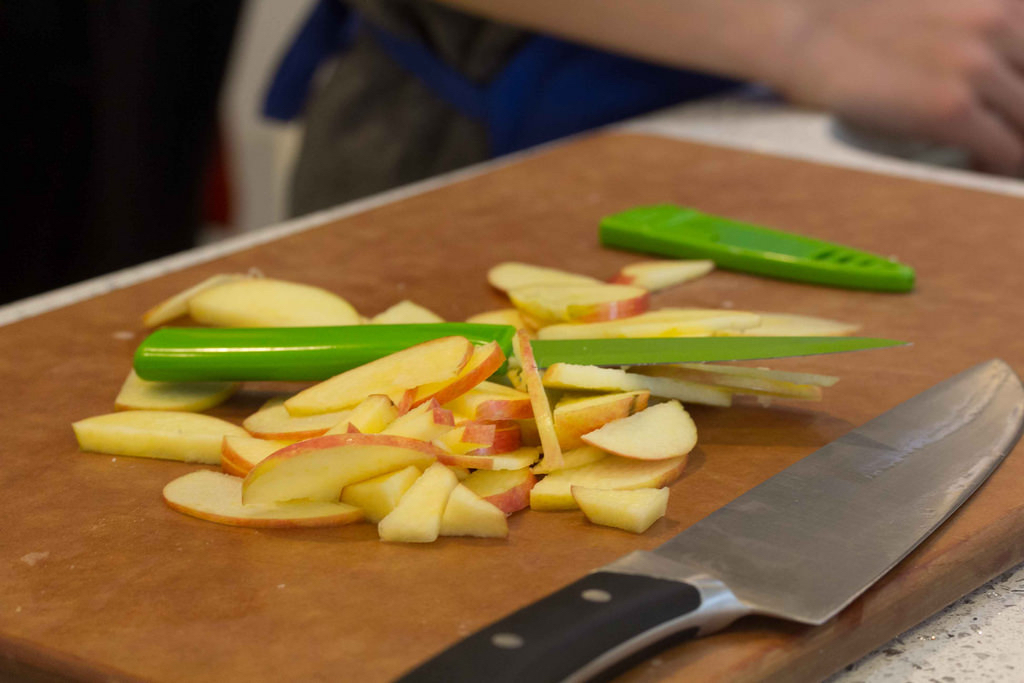RVA Family: Tiny freedoms
In trying to be more present with my kids, I’ve found myself thinking more about why I might be saying “no” in a given moment.

My eight-year-old rides by the house on her bicycle. This is her fifth lap around the block. Each pass restarts a timer in my head, calculating her average pace per lap and when I should start to worry that I haven’t seen her in awhile. Sometimes I mentally follow her when she’s out of sight, my brain imagining her journey, worrying when my visualization out-paces her. But then she rounds the corner 30 seconds later.
My almost-five-year-old wants some water. She does not want to use the accessible water bottle on the table, but rather to fill her cup directly from the tap. A chair will be used as a makeshift ladder. I find it in me to say yes, and she delights in her slightly increased independence.
These little freedoms mean everything to my kids, but they are so hard to say yes to. How do you know when it’s the right time to let your kid play in the backyard by herself? How do you know when to let your kids help cut up the avocados for Taco Night? Well, you don’t. You say yes, and if they manage to not die or lose a finger, you let them do it again.
I just finished reading The Wisdom of Insecurity by Alan Watts.1 The book is an exploration of the modern world2 and how anxiety over things like money, buying stuff, etc. only causes more anxiety about those things. There will never be enough money; I’ll never have enough “stuff”. Watts speaks of finding more peace when one is more fully in the present moment, as opposed to fixating on what happened in the past, or what may need to happen in the future. At a certain point, you have to enjoy actually eating tacos at Taco Night, not just the idea of Taco Night.
In trying to be more present with my kids, I’ve found myself thinking more about why I might be saying “no” in a given moment. If my four-year-old asks to do some painting, am I saying “no” because there’s not enough time before dinner, or am I saying “no” because I really don’t want to get off the couch now–and really, really don’t want to get off the couch later to clean it up.
It’s also easy to say “no” to things just because you’ve always said “no” to them. You know a kid isn’t ready for something until you suddenly don’t. One day, my daughter will ask yet again to cross the busy street that separates her from the playground without a grown-up. On that day, instead of saying “no, of course not”, I’ll hesitate and give it a think. I might say “yes.” She might get hit by a car. She’ll more than likely be totally fine.
The little freedoms aren’t just one-way. The kids being able to play outside with minimal supervision means it’s easier for me to do the dishes or read a book. A kid who can make her own lunch means that’s 10 percent fewer lunches that I have to make.3 Having young kids, I can only imagine the conflict in parents when their child begins to drive an automobile. On one hand, your kid is now operating an inertial death machine powered by controlled explosions. On the other hand, you don’t have to drive them to swim practice.
I don’t think I’ll be the type of parent who reminisces about how much my kids used to need me. But I think I’ll always be the type of parent who worries that he made the right choice. And I hope I’ll be the parent with enough courage to say “yes” as often as I can.
- I just returned it today to Richmond Public Library, so you all can fight over who gets to check it out next. ↩
- At least the “modern” world of 1951, which, in the context of the book, is unsurprisingly similar to 2015. ↩
- Just because a kid can make her own lunch, doesn’t mean she will make her own lunch. Her making her own lunch 1 out of 10 times is an extremely hopeful estimate. ↩
-
Recommend this
on Facebook -

Report an error
-

Subscribe to our
Weekly Digest





There are 3 reader comments. Read them.